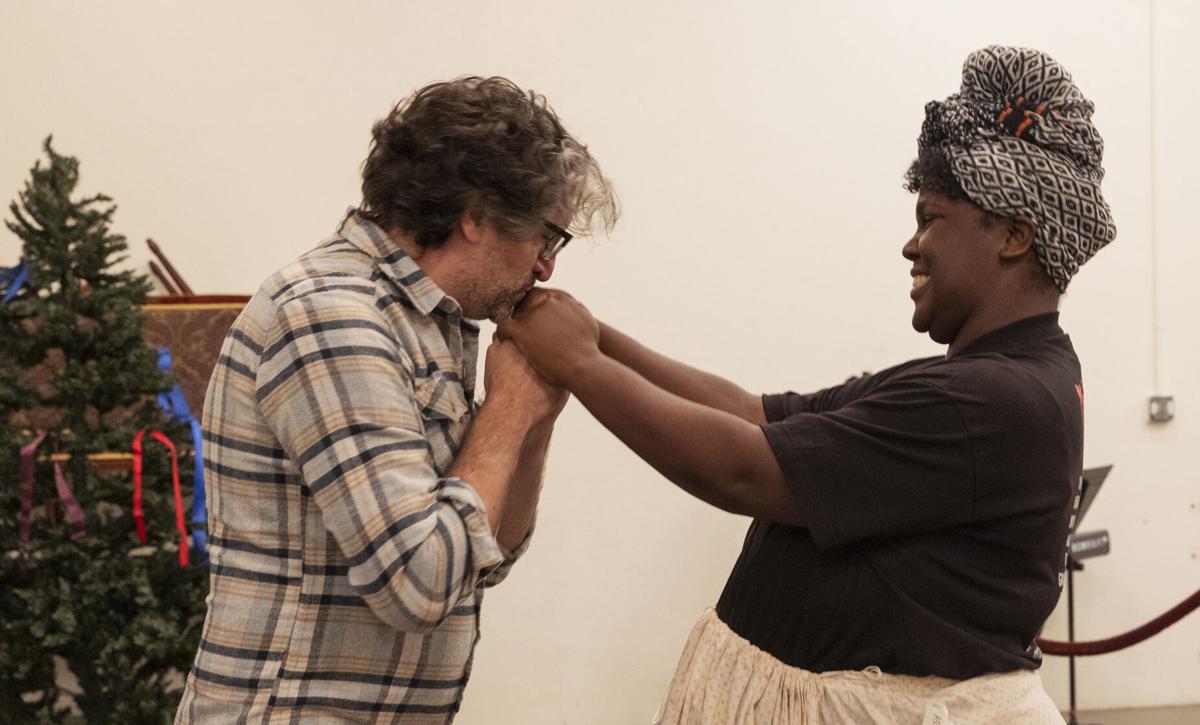Jane Austen’s world is pretty white, right?
Not always. Arizona Theatre Company’s Artistic Director Sean Daniels saw that world quite differently.
When he was casting for “Miss Bennet: Christmas at Pemberley,” a sequel of sorts to Austen’s “Pride and Prejudice,” set in England in the early 1800s, he didn’t look for the typical Austen cast of characters — that is, all white actors.
“I think what’s amazing about ‘Pemberley’ is that it is fan fiction about a piece of fiction,” he said a few days after the play’s November opening in Tucson.
That gave him the freedom to imagine a cast that pulled in the best actors, regardless of physical attributes. He deliberately set out to do “color-conscious casting.”
Color-conscious casting — sometimes called nontraditional casting — simply means that actors are hired without consideration of skin color, gender or body type.
The result is a wide range of diversity on the “Christmas at Pemberley” stage: John Gregorio, who plays Jane’s husband Charles Bingley, is an Argentinian actor based in Chicago; Jane Bennet is played beautifully by Shonda Royall, a black actor from Phoenix; and the dweeby suitor in the play, Arthur de Bourgh, is brought to life by Seth Tucker, who describes himself as “a proud queer, Latinx.” He, too, is from Phoenix.
The youngest Bennet sister, the very silly and vain Lydia, is portrayed by Latina actress Elena Lucia Quach, who is from Tucson.
This cast was so good that the audience easily bought into the story. It all seemed to be what it is — natural.
“I was determined, when casting, to find the most qualified actors,” said Daniels. He was equally as determined to find Arizona actors and performers who did not fit into the typical Austen mold.
“I wanted a cast that looks like the community we live in,” he said.
His approach to casting encouraged Royall to audition for a part she never would have pursued.
“I would not have gone for this role five years ago,” she said between Tucson performances.
“I would have felt limited. I wouldn’t think a director would see a black woman in the role. … I am really blown away and honored he (Daniels) took a chance on Arizona actors and actors of color. It is easy to get overlooked.”
When she read the script, she realized that skin color plays no part in the characters.
“The Bennet sisters are similar to my own,” she said. “I saw no color in Jane. … I knew the story was bigger than color and that I could play her as a universal person.”
Tucker says color-conscious casting isn’t always the way it was. But times have changed.
“Now people realize it doesn’t change the story,” he said. “And it encourages underrepresented actors.”
The lack of opportunities for ethnically-diverse actors has long been a topic among Tucker and his friends. Now that conversation has spread beyond the group.
“Things have been changing gradually, so I’ve begun to feel anything is possible,” said Tucker.
“I am Mexican and at some (theaters) I felt I wouldn’t be considered. I no longer think that is a thing.”
Though slight attention and lip service have been given to broader casting, Tucker thinks the musical “Hamilton’’ blew it wide open. The blockbuster play cast BIPOC (Black, Indigenous and People of Color) actors as the founding fathers.
“It changed the whole game,” he said.
“No one would have considered BIPOC artists in those types of roles. Once on stage, the artists are creating characters and making them their own and it’s refreshing.”And it has opened doors.
“Representation on stage is so huge,” said Tucker.
“Since ‘Hamilton’ I know so many young performers who will pursue the arts because now they feel there is a place for us.”
Going forward, Daniels intends to keep his casting philosophy: the best actors for the roles, Arizona artists, and BIPOC casts whenever possible. What’s on stage, he said, should reflect those in the community.
“I don’t want anyone to feel they don’t see themselves on stage,” he said.
“There’s no reason why we can’t reflect the community we live in, telling stories that can unite or entertain us.”





